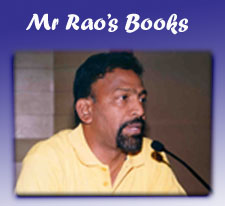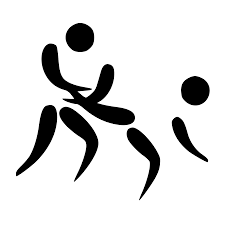

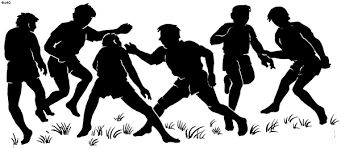
It's Time You Knew About Kabaddi: The Ancient Game That's Gone Pro
https://youtu.be/av1mr3UpdZk
https://www.youtube.com/watch?v=av1mr3UpdZk&feature=youtu.be
ORIGIN OF THE GAME:
The origin of the game dates back to pre-historic times played in different forms. it was probably invented to ward off group attacks on individual and vice-versa. A dramatized version of the great Indian epic, the "Mahabharatha", has made an analogy of the game to a tight situation faced by "Abhimanyu", the heir of the Pandava Kingswhen he is sorrounded all the sides by Seven "Kaurava warriors".
Buddhist literature speaks that the "Gautham Buddha" Prince Siddhartha had played this sport "Kabaddi" during his youth to demonistrate his strength and power as a part of their tradition. History reveals that princes of yore played Kabaddi to display their strength to win their brides !!!
Prince Siddhartha (Buddha) had played the sport "Kabaddi"
Little Buddha is a 1993 drama film directed by Bernardo Bertolucci, written by Rudy Wurlitzer and Mark Peploe, and produced by usual Bertolucci collaborator Jeremy Thomas. An international co-production of Italy, France, and the United Kingdom, the film stars Chris Isaak, Bridget Fonda and Keanu Reeves as Prince Siddhartha (the Buddha before his enlightenment).
Courtesy: https://en.wikipedia.org/wiki/Little_Buddha
In the film Prince Siddhartha had played the sport "Kabaddi" during his youth to demonistrate his strength and power as a part of their tradition.
https://m.facebook.com/watch/?v=732746187460610&_rdr
MODERN KABADDI:
The game was very popular as a traditional sport in whole Asia, played in different forms under different names. The Games was known as:
HU - TU - TU - Western India
HA - DU - DU - Eastern India, Bangladesh, & Nepal
Chedu - Gudu - Southern India, Sri Lanka & Malaysia
Kaun - Bada - Northern India
The modern Kabaddi is a synthesis of the game played in various forms under different names all over India and attained national status in 1918. Maharashtra was the pioneer state to bring the game to national platform and to give it further popularity. Standard rules and regulations were formulated in the year and the first known framework of the rules of Kabaddi as an indigenous sport of India was prepared in Maharashtra in the year 1921 for Kabaddi competitions on the pattern of Sanjeevani and Gemini in a combined form.
Thereafter a committee was constituted in the year 1923, which amended the rules framed in 1921. The amended rules were applied during the All India Kabaddi Tournament organized in 1923.
Unification of kabaddi
Shankarrao (Bua) Salvi is not a household name. Far from it. The impact of his work for the sport of kabaddi though can be felt in every household that hosts a kabaddi player at any level in India, especially in Maharashtra. A visionary... he was quick to realise that kabaddi as a sport would only have a future if the various forms it was played in, in different parts of India were structured into a single sport with uniform rules.
“One game, one federation, one association was his aim. He had a clear vision that the unified sport that he felt could become India’s most popular,” Prabhakar Walanj, Salvi’s colleague and co-founding member of the Amateur Kabaddi Federation of India told Scroll.in. https://scroll.in/field/963633/the-story-of-shankarrao-buwa-salvi-the-selfless-administrator-behind-kabaddis-exponential-growth?
Eventually, Salvi’s relentless efforts and ability to conjure up a convincing argument prevailed. A national federation called the All India Kabaddi Federation was formed in the year 1950 to look after the promotion of the game and the Senior National championship started from the year 1952.
“The name was a matter of big debate. Hu tu tu was the most popular among all variants but we felt it was easy to break the chant and sneak in a few breaths while saying it. In that aspect, we found kabaddi to be a better name,” Walanj said. Scroll.in.
The name kabaddi originated in Punjab and was a corrupted version of ‘kaun bada’, a phrase that was often uttered in the circle style kabaddi where there was a one on one contest between two players after a touch was initiated. Scroll.in.

The new body, Amateur Kabaddi Federation of India (AKFI) came in to existence from the year 1972 affiliated to Indian Olympic Association (IOA) with a view to popularize the game in India & neighboring countries of Asia. After formation of this body, Kabaddi took a new shape and national level competitions started for Junior and Sub-junior boys & girls also. A separate competition, Federation Cup was introduced for men & women for the elite teams (best eight) of the country.
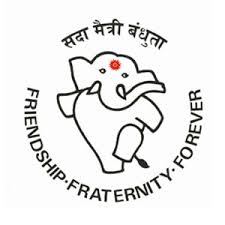 The Asian Kabaddi Federation AKF was formed in the year 1978. The 1st Asian Kabaddi Championship was held in the year 1980 and was included as a demonstration sport in the 9th Asian Games, New Delhi in the year 1982. The game was included in the South Asian Federation (SAF) games from the year 1985 at Dacca, Bangladesh
The Asian Kabaddi Federation AKF was formed in the year 1978. The 1st Asian Kabaddi Championship was held in the year 1980 and was included as a demonstration sport in the 9th Asian Games, New Delhi in the year 1982. The game was included in the South Asian Federation (SAF) games from the year 1985 at Dacca, Bangladesh
Scroll.in
Wednesday, October 28th 2020 KABADDI KABADDI
Going international: How kabaddi, a quintessential Indian sport, became an Asian Games discipline
Much before Pro Kabaddi arrived to revolutionise the sport, kabaddi’s entry into the Asian Games was a massive boost to the sport’s ailing fortunes
https://scroll.in/field/959860/going-international-how-kabaddi-a-quintessential-indian-sport-became-an-asian-games-discipline
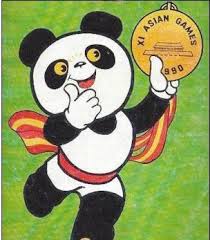
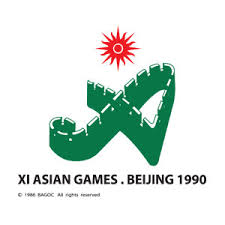
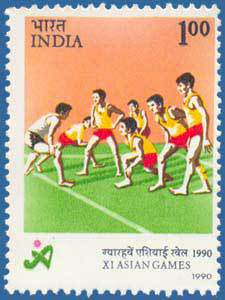
KABADDI IN THE 1990 BEIJING ASIAN GAMES CHINA
Kabaddi was included as a regular sports discipline in the 11th Beijing Asian Games 1990 and India won the lone Gold Medal in the Asian Games in Kabaddi. India is the reigning champion in the succeeding Asian Games held in Hiroshima 1994, Bangkok 1998, Busan 2002, Doha 2006, Guangzhou 2010 & at Incheon 2014 and created history in Indian sports by winning seven consecutive Gold medals in the Asian Games so far.
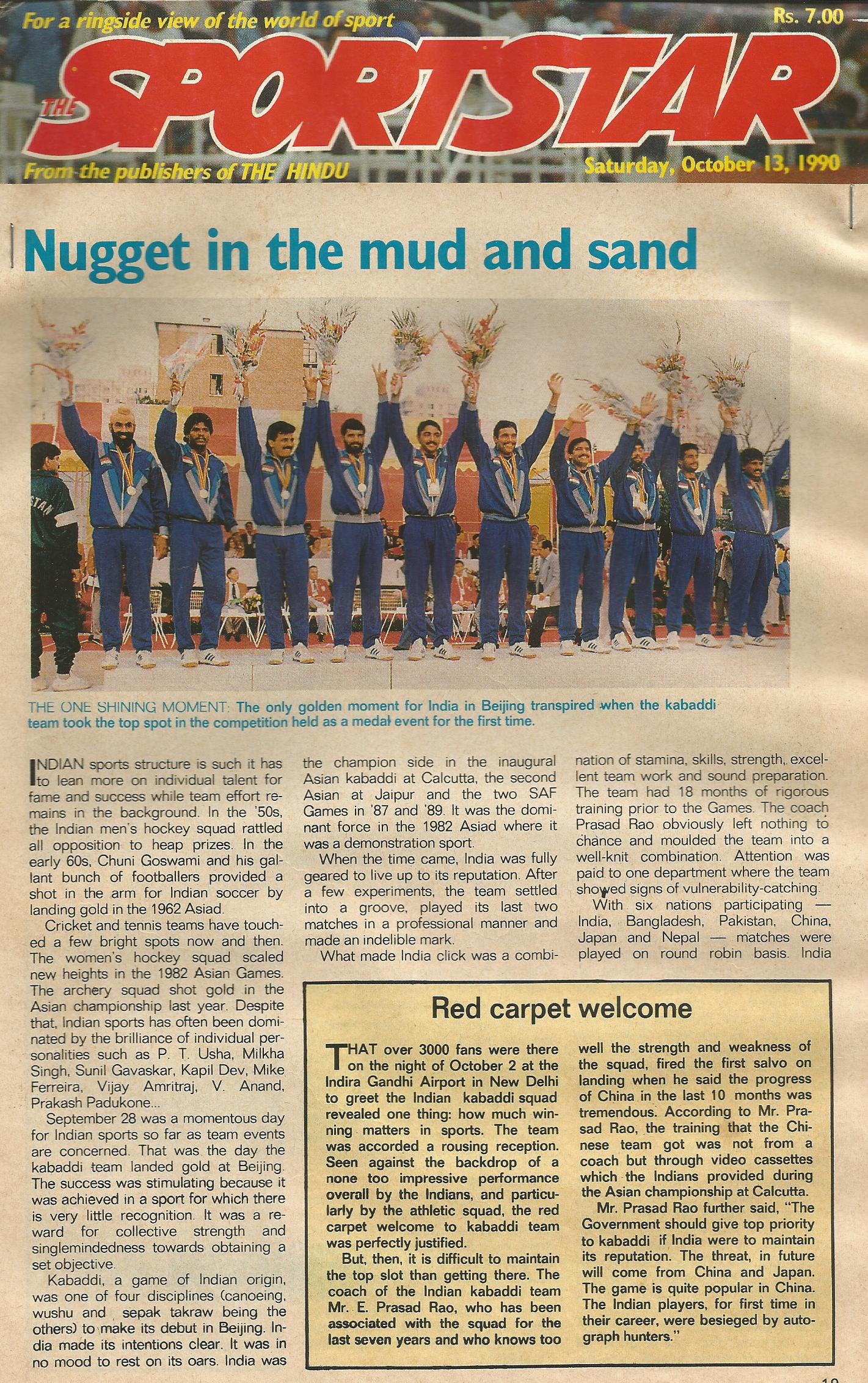
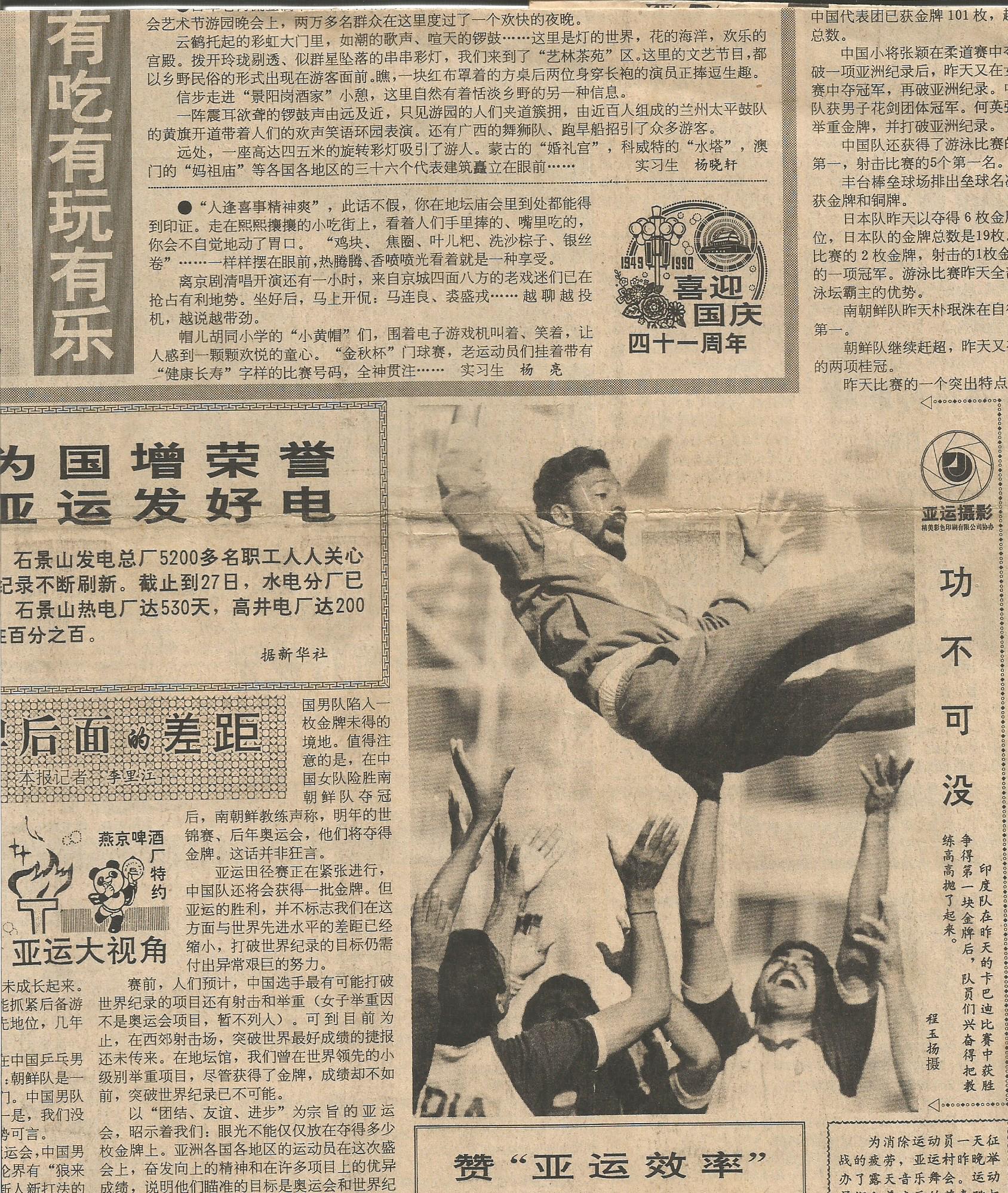
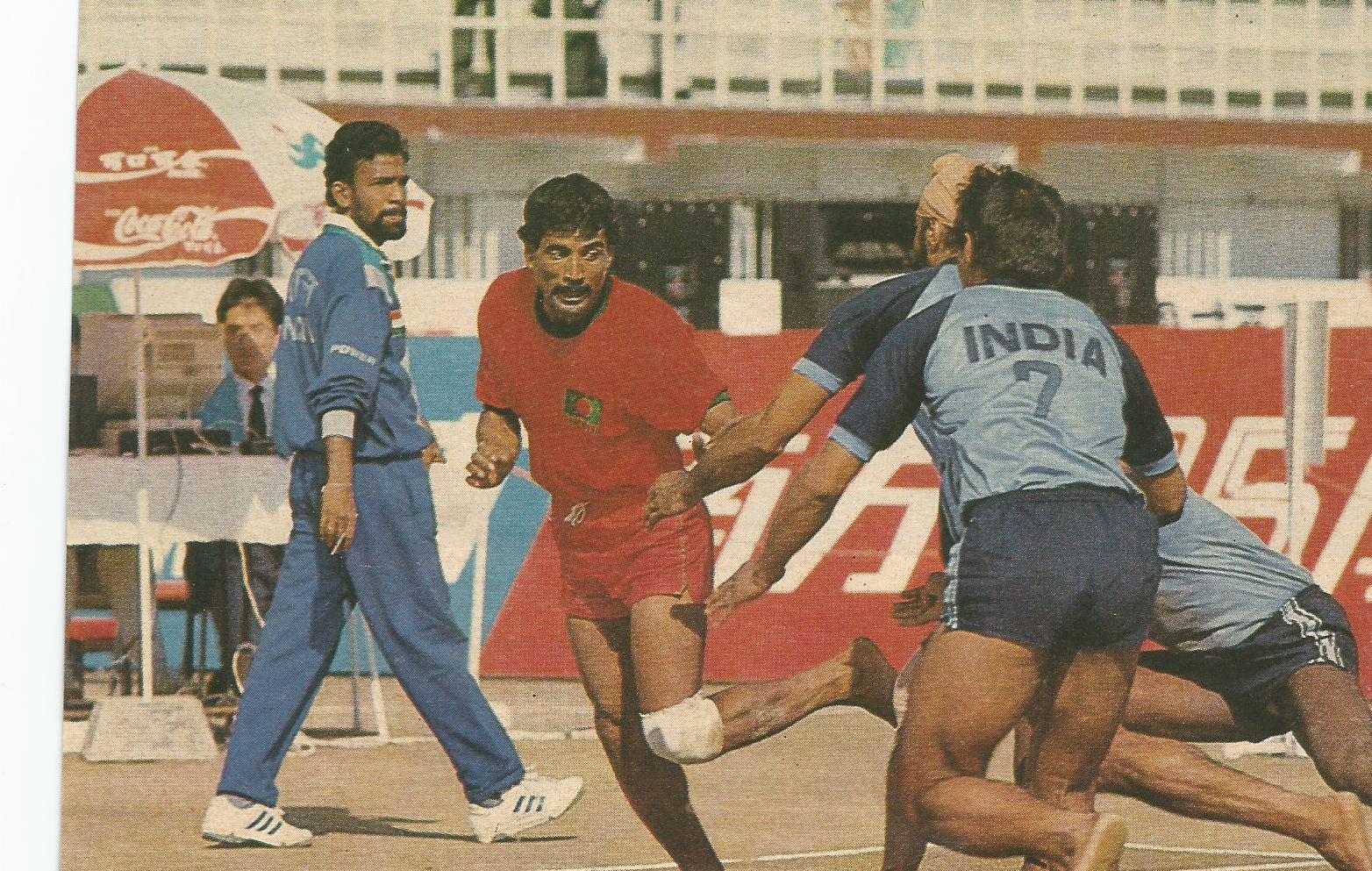
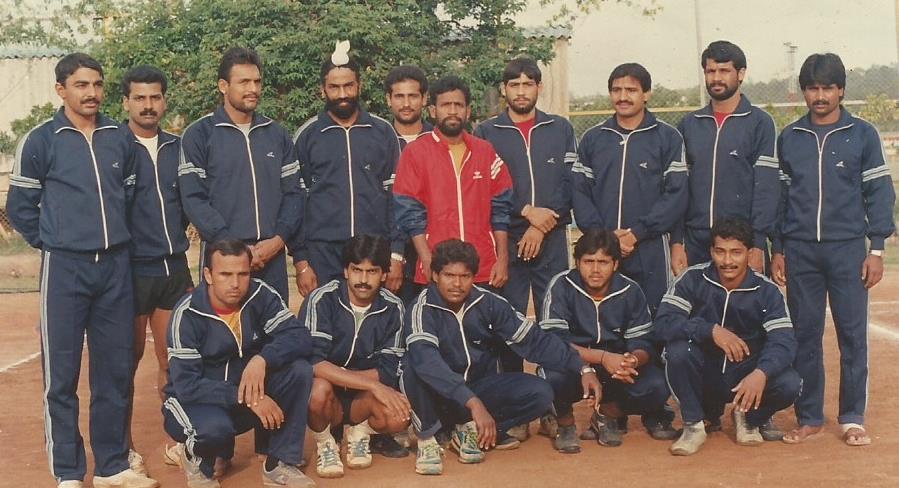
 The Inter-national Kabaddi Federation [IKF] was formed during the 1st World Cup in Kabaddi 2004 at Mumbai in India. India won the First World Cup by beating Iran in the finals. The First Asian Women Championship was held at Hyderabad in 2005 and India won the Gold Medal. Women Kabaddi was included for the first time in the South Asian Games held in Colombo, Sri Lanka in 2006. The second World Cup was held in India at Panvel in 2007 and India once again reigned supreme.
The Inter-national Kabaddi Federation [IKF] was formed during the 1st World Cup in Kabaddi 2004 at Mumbai in India. India won the First World Cup by beating Iran in the finals. The First Asian Women Championship was held at Hyderabad in 2005 and India won the Gold Medal. Women Kabaddi was included for the first time in the South Asian Games held in Colombo, Sri Lanka in 2006. The second World Cup was held in India at Panvel in 2007 and India once again reigned supreme.
For the first time in the history of Asian Games a separate indoor stadium was built for Kabaddi competition and training in the 15th Asian Games held at Doha [Qatar] 2006. The training/ warming up courts and main field of play was made up of puzzle mats of Korean make. The main field of play was equipped with a giant public screen, which displayed replays and the running score. Two Tissot plasma scoreboards, info terminals for the presentation crew, the ceremony crew and the media were provided.
The 15th Asian Games Doha provided an excellent opportunity to showcase Kabaddi to the Europeans and Australians who were in great numbers in organizing the Asian Games. A good many spectators belonging to European countries, USA, Australia, Western Asia, and the Mediterranean countries, who saw the Game for the first time, were very impressed with the simple rules and the thrill of the sport and desired to introduce the sport in their countries. This has given Kabaddi very good and positive exposure for its future development in the continents of Europe, USA, Australia and Africa.
Kabaddi has been included as a major discipline in the 2nd Asian Indoor games to be held at Macau from 25th October to 3rd November 2007 and in the Asian Beach Games being hosted by Indonesia in 2008, which are major landmarks in the history of the game.
There has been a gradual but significant change in the trends of the game since the past 50 years. What was once considered a game of brawn is not so now. The introduction of mats, shoes, new techniques & changes in rules has made the sport more interesting and advantageous to skilled players who are now able to defeat heavier players with better skills & techniques.
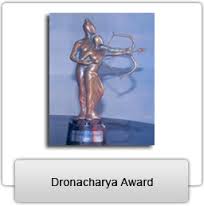
DRONACHARYA AWARD
Dronacharya award is one of India’s civilian sporting honors. It is awarded in recognition of outstanding achievements by coaches who have successfully trained sportspersons or teams and enabled them to achieve outstanding results.
Other sporting honors and decorations in India are Rajiv Gandhi Khel Ratna Award for highest achievement in sports, Arjuna Award for achievements in sportsmanship and Dhyan Chand Award for lifetime achievement.
Dronacharya was the guru/coach of Arjuna. He was an expert in advanced military arts and Arjuna was his favorite student. Since the award for outstanding achievement in sports is named after Arjuna, the award for coaching was thus named after Dronacharya.
Dronacharya Award was constituted in 1985 and Five Kabaddi coaches have received this award so far.
Kabaddi coaches have always been at the epicenter of their teams. They have lead Kabaddi players from the forefront. Kabbadi has seen many professionally competent coaches, all around the world. They try to master players for conditions that are very hard to master.
Dronacharya Awardees in Kabaddi:
2002 Shri. E. Prasad Rao SAI
2005 Shri. Balwan Singh SSCB
2012 Ms. Sunil Dabas Haryana
2019 Shri. R. S. Khokar SAI
2020 Shri. Krishan Kumar Hooda Haryana
ARJUNA AWARD

Arjuna award is one of India’s civilian sporting honors. It is awarded in recognition of outstanding achievements of sportspersons in the field of sports at International level. Arjuna award was constituted in 1961.
It is awarded by the Government of India and considers conferring Arjuna Award in the disciplines falling under following categories:-
a) Olympic Games/Asian Games/Commonwealth Games
b) World Cup/Word Championships
c) Adventure sports/Indigenous Games/Sports for the Physically challenged
Arjuna was one of the Pandavras in the Hindu epic, Mahabharata. Because of his superior qualities as a matchless archer, he is considered to be the greatest warrior on earth.
To correlate his velour and commitment towards a sport, prominent sportsman receive an award named after him. It gives an opportunity for them to further advance in their respective sport and draw inspiration from such a legend.
Shri Sadanand M. Shetty was the first ever Kabaddi player to receive this award in 1972. Following is the list of Kabaddi players who have received this award:
|
Sl No.
|
Year
|
Awardee
|
|
1
|
1972
|
Shri S. M. Shetty
|
|
2
|
1973
|
Shri Bholanath Guin
|
|
3
|
1978-79
|
Km. S. P. Khatavkar
|
|
4
|
1980-81
|
Shri Shantaram Jadhav
|
|
5
|
1981
|
Km. Monika Nath
|
|
6
|
1983
|
Km. Maya Kashinath
|
|
7
|
1986
|
Km. Rama Sarkar
|
|
8
|
1990
|
Shri Hardeep Singh
|
|
9
|
1994
|
Shri Ashok D. Shinde
|
|
10
|
1994
|
Shri S. Rajrathanam
|
|
11
|
1995
|
Shri P. Ganeshan
|
|
12
|
1996
|
Ms. Neeta Moreshwar Dadwe
|
|
13
|
1996
|
Shri Shriram Bhavsar
|
|
14
|
1997
|
Shri Randhir Singh
|
|
15
|
1998
|
Shri Ashan Kumar
|
|
16
|
1998
|
Shri Biswajit Palit
|
|
17
|
1999
|
Shri Balwinder Singh
|
|
18
|
1999
|
Shri Tirath Raj
|
|
19
|
2000
|
Shri C. Homonappa
|
|
20
|
2001
|
Shri B. C. Ramesh
|
|
21
|
2002
|
Shri Ram Mehar Singh
|
|
22
|
2003
|
Sh. Sanjeev Kumar
|
|
23
|
2004
|
Sunder Singh
|
|
24
|
2005
|
Shri Ramesh Kumar
|
|
25
|
2006
|
Shri Navneet Gautum
|
|
26
|
2008
|
Shri. Pankaj Navanath Shirsat
|
|
27
|
2010
|
Shri. Dinesh Kumar
|
|
28
|
2011
|
Miss. Tejaswini Bhai
|
|
29
|
2011
|
Shri. Rakesh Kumar
|
|
30
|
2012
|
Shri. Anup Kumar
|
|
31
|
2014
|
Miss. Mamatha Poojary
|
|
32
|
2015
|
Shri. Manjeet Chiller
|
|
33
|
2015
|
Miss. Abhilasha Matre
|
|
34
|
2017
|
Shri. Jasvir Singh
|
|
35
|
2019
|
Shri. Ajay Thakur
|
|
36
|
2020
|
Shri. Deepak Hooda
|
 DHYAN CHAND AWARDEE
DHYAN CHAND AWARDEE
Dhyan Chand Award is India's highest award for lifetime achievement in sports and games, given by the Government of India.
The Dhyan Chand Award, officially known as Dhyan Chand Award for Lifetime Achievement in Sports and Games, is the lifetime achievement sporting honour of the Republic of India. The award is named after Dhyan Chand (1905–79), an Indian field hockey player who scored more than 1000 goals during his career which spanned over 20 years from 1926 to 1948. It is awarded annually by the Ministry of Youth Affairs and Sports.
Dhyan Chand Awardees in Kabaddi:
2007 Shri. Shamsher Singh Haryana
2020 Shri. Manpreet Singh Punjab
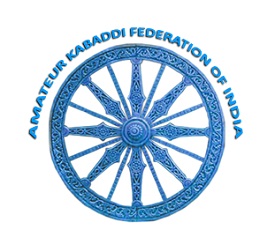
LIFE ACHIEVEMENT AWARDS IN KABADDI PRESENTED BY
AMATEUR KABADDI FEDERATION OF INDIA
Amateur Kabaddi Federation of India HONOURED with Life Achievement Award from the year 2015 to the following people for their great contribution towards the development of Kabaddi sport
2015 LATE SHRI. SYED CHANDA HUSSAINI TELANGANA
2015 LATE SHRI. GIRISH CHANDRA BHARGAVA RAJASTHAN
2016 LATE SHRI. S. N. SALVI (BUWA) MAHARASHTRA
2016 LATE SHRI. CHARAN SINGH DELHI
2017 LATE SHRI. J. P. AGARWAL U. P.
2017 SHRI. E. PRASAD RAO SAI

